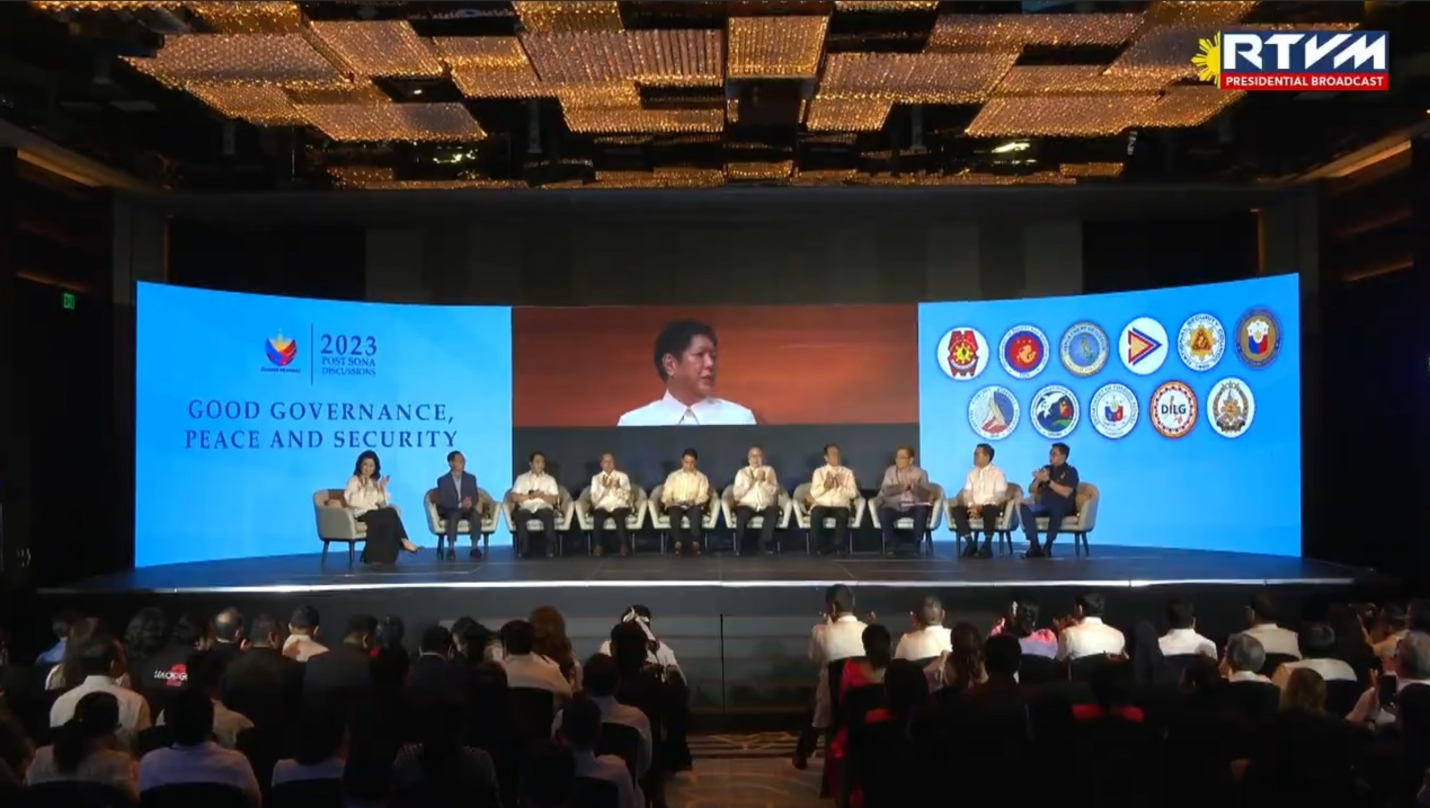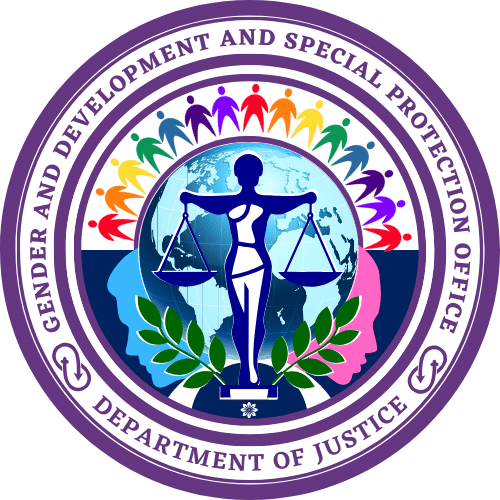ONION SMUGGLING
The Department of Justice (DOJ) is currently conducting a thorough investigation in response to the issue of onion smuggling in the country. This investigation aims to eliminate the detrimental impact of onion smuggling on the country's agricultural sector, Filipino farmers, as well as the national economy. To address this issue, the Department will collaborate closely with other government agencies, including the Bureau of Customs and the Department of Agriculture, among others.
In fact, last 20 June 2023, the Department of Justice – Office for Competition (DOJ- OFC) released its 2023 Report on the Onion Industry. This follows from the spike onion prices of almost 600% from Php120 to Php700 in the last quarter of 2022. The Report found the same modus operandi where entities in various levels of the supply chain controlled the movement and pricing of onions in the country and influenced the volume and timing of importation. It also confirmed the continuing use of an import permit system that effectively restricted and/or controlled supply of imported onions to a select group of entities owned or controlled by the same person.
“There are indications of regulatory failure and regulatory capture. The offices tasked to monitor onion inventory were not up to task. There was lack of transparency and fairness in the issuance of the so-called ‘import permits’ and there were excesses committed by players in the industry,” said Secretary of Justice Crispin C. Remulla.
The Report will now be endorsed to the National Bureau of Investigation and the National Prosecution Service for criminal investigation. The Secretary of Justice is set to constitute a specialized team to meet the directive of the President to address the smuggling and illegal price manipulation of agricultural commodities.
The DOJ OFC previously completed the Report on the Price Increase of Garlic for the Period of June 2013 to June 2014 and Report on the Onion Industry in 2015 that led to the filing of criminal charges against several traders in the garlic industry and former officials of the Department of Agriculture.
The DOJ is one with the President in its commitment to eradicate onion smuggling in the Philippines. The Department is not only focused on investigation and prosecution but also on enhancing the regulatory framework and strengthening border controls to prevent future incidents.
ILLEGAL DRUGS CAMPAIGN
The Department remains steadfast in its commitment to addressing the drug war crisis, but with a fresh perspective aimed at the rehabilitation of drug victims. Recognizing that a solely punitive approach has limitations, the DOJ will prioritize community-based treatment and rehabilitation programs that focus on providing support and education to those affected by drug dependence. By investing in rehabilitation and reintegration efforts, the DOJ aims to curb drug dependence and reduce the prevalence of drug-related crimes.
While emphasizing the need for rehabilitation, the DOJ will not waver in its determination to combat drug syndicates. Law enforcement efforts will continue to target those involved in the illegal drug trade to dismantle the operations of these criminal organizations. To achieve a more holistic approach, the DOJ will collaborate closely with the Philippine National Police (PNP) and the Department of the Interior and Local Government (DILG). Through this coordinated effort, the DOJ seeks to strike a balance between law enforcement and rehabilitation, fostering safer communities and offering a path to recovery for those ensnared by the drug menace.
BUREAU OF IMMIGRATION MODERNIZATION ACT
The enactment of the proposed Bureau of Immigration Modernization Act, aims to comply with international law standards, strengthen national security, and enhance the country's role in the global community. The law introduces significant changes to the administration of immigration laws, focusing on professionalism, efficiency, and promoting friendly relations with other nations.
The proposed law has several key objectives. Firstly, it aims to ensure compliance with international law, ensuring that the admission and exclusion of foreign nationals align with international obligations and standards. Secondly, the Act focuses on national security by preventing the use of Philippine territory for terrorist activities, human smuggling and trafficking, and other criminal endeavors. Additionally, the law aims to modernize immigration structures and mechanisms to meet the changing demands of the global community. It also seeks to professionalize the immigration service through a rigorous screening and selection process for officials and employees, while promoting their professional development. Furthermore, the Act aims to enhance investments, trade, commerce, cultural exchanges, and cooperation with other countries. Lastly, it endeavors to update and harmonize Philippine laws, rules, and regulations related to immigration.
The bill introduces key provisions to streamline and enhance the immigration process. These provisions include the creation of a Board of Commissioners, responsible for making decisions on immigration cases and formulating policies. Additionally, the Act establishes various directorates and operating offices within the Bureau to improve efficiency and service delivery. It also proposes the establishment of Regional Offices for better accessibility and coordination. The law authorizes the use of income for the upgrading of equipment in order to keep up with the increasing demands of travelers. An express lane system is introduced for expedited services upon payment of prescribed fees. Furthermore, the Act raises the salary grade of immigration officers to attract qualified professionals. Lastly, it ensures the harmonization of immigration rules and regulations for the issuance of visas to foreign nationals.
Ultimately, the proposed legislation represents a significant step towards enhancing the country's immigration policies and national security while fostering positive relations with other nations. It reflects the government's commitment to modernize and professionalize the immigration service for the benefit of both citizens and foreign visitors.
AMNESTY TO REBEL RETURNEES
The Department is fully engaged in a collaborative effort with the Department of National Defense (DND) and the Amnesty Commission to address the issue of armed struggle in our nation. President BBM has sought our expertise and guidance in formulating an executive order that will grant amnesty to rebel returnees. We are steadfast in our commitment to working hand in hand with our partner agencies to develop a comprehensive and effective amnesty program that caters to the needs and concerns of former rebels.
Our collective goal is to create an amnesty framework that promotes lasting peace, reconciliation, and reintegration of former rebels into society. Through careful consideration and in-depth analysis, we aim to design an amnesty program that not only fosters reconciliation but also addresses the root causes of armed struggle. By providing a pathway for former rebels to return to the fold of the law, we aspire to contribute significantly to the stability and harmony of our country.
As the DOJ plays a pivotal role in upholding justice and maintaining the rule of law, we remain resolute in our efforts to assist in the formulation of this executive order. Together with our partners and under the leadership of President BBM, we strive to bring about a positive impact on the lives of those affected by armed struggle and to build a nation where peace and understanding prevail.








